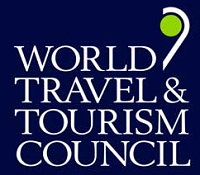
WTTC AND BIOSPHERE JOIN FORCES TO STANDARDISE INTERNATIONAL HOTEL SUSTAINABILITY
More than 2,500 hotels will benefit from this collaboration. |
 |
WTTC AND BIOSPHERE JOIN FORCES TO STANDARDISE INTERNATIONAL HOTEL SUSTAINABILITY
More than 2,500 hotels will benefit from this collaboration. |
Category: Worldwide - Industry economy
- Sustainability - Tourism
This is a press release selected by our editorial committee and published online for free on 2024-01-19
The partnership aims to support common core principles in hotel sustainability, driving accommodation towards sustainable alignment
In a joint effort to promote sustainability in the Travel & Tourism sector, the World Travel & Tourism Council (WTTC) and Biosphere have inked a partnership to promote sustainability criteria in the hotel industry under the Hotel Sustainability Basics initiative.
In the current landscape of globalisation and information saturation, where sustainability holds paramount importance, the proliferation of new standards and eco-labels poses a significant challenge for the sector.
Identifying clear and consistent sustainability criteria has become increasingly difficult.
Biosphere and WTTC have joined forces and solidified their commitment to fostering a more sustainable hotel industry to establish fundamental steps for global sustainability practices,
This marks a significant milestone for global hotel sustainability, benefiting over 2,500 hotels.
As partners of the Sustainable Hospitality Alliance (SHA), both organisations are optimistic that standardising their sustainability concepts will undoubtedly catalyse widespread adoption by hotels worldwide.
Julia Simpson, WTTC President & CEO, said: "Hotel Basics is a crucial and inclusive industry initiative, ensuring hotels continue to adapt and evolve to meet the needs of both travellers and the planet.
“The collaboration between Biosphere and WTTC is a fundamental step towards international standardisation in sustainability, creating a clear and homogeneous pathway for the industry."
The recent signed agreement between WTTC and Biosphere will lay the groundwork for a network of international criteria homogenisation.
This initiative aims to facilitate the industry's transition from basic criteria to more advanced global standards, aligning with the 17 Sustainable Development Goals (SDGs) and 169 goals of the United Nations. This connection is made possible through the Guide for Sustainable Tourism of UN-SDSN Spain and Biosphere.
Dr. Tomás de Azcárate Bang, President of the Responsible Tourism Institute, said: "Sustainability must be viable, understandable and achievable. This requires consensus and harmonisation of concepts, steps, and measures, which this agreement seeks to accomplish.
“The harmonisation of languages and processes will establish a more stable and defined international framework for all stakeholders aligning with sustainability models.
"This partnership signifies a milestone for the industry. By synching our approaches, we are paving the way for a rock-solid international playbook, inviting all players worldwide to align with sustainability models”.
This collaboration will result in the integration of the WTTC's Hotel Sustainability Basics verification and the Biosphere methodology, creating the most comprehensive international framework for the sector, with a unified vision connected to the Sustainable Development Goals.
Hotel Sustainability Basics emerged as a result of a clear demand from a significant group of global hotel brands to develop fundamental sustainability criteria that all accommodation providers must meet as a minimum, designed for the industry, by the industry.
Hotels, guest houses and tourist residences will be able to adopt the 12 criteria of the initiative, focusing primarily on the following main lines of action:
1. Measuring and reducing energy and water consumption, as well as reducing waste and carbon emissions
2. Fundamental actions to protect the environment.
3. Fundamental actions towards a positive contribution to the communities in which they are located.
|
|




